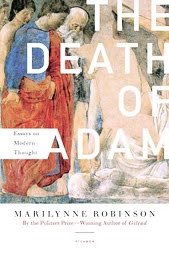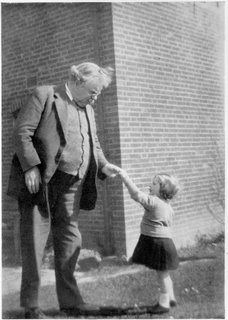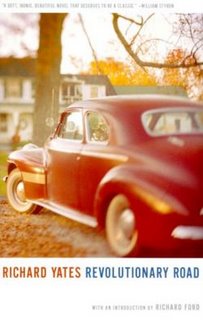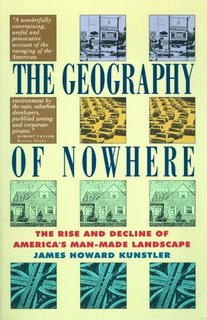
Last month I had the honor of preaching at my cousin Lisa's wedding, and this is the transcript of my message. Note: As someone who often has to endure grief for my name (in New England, "Joey" is either a little kid or a baby kangaroo, not a pastor's name to say the least), it warms my heart to know that I now have someone (in my family no less) who must endure more. :)
The above picture is a lithograph of
Lookout Mountain circa 1866.
October 28, 2006
Lisa and Trippy,
It is a great honor and a privilege to be able to give you a charge from Scripture to begin your marriage. For those of you who don’t know, Lisa is my first cousin, so this is a special honor for me to participate in this service.
Marriage is a picture or a drama that was meant to point us all to Christ. It is God’s idea, he created it, and he uses it again and again in Scripture as a metaphor to show how he loves us, that He has committed himself to love his people even as a groom commits himself to care for his bride, even tripping over himself in his eagerness to show us his love. Last night at the rehearsal dinner we heard all kinds of stories from family and friends about how God has already been at work knitting the two of you together, as different as you are, and we’re here tonight to witness God now binding you together to become one flesh.
Of course one of the tragic effects of the Fall is that marriage is often seen as a means to an end of personal fulfillment, and what God intended to be a drama of love and redemption becomes in reality a story of two warring kingdoms, each trying to gain power over the other. The question I want to consider for a few moments is this: What will bind the two of you together to make your marriage a gospel drama rather than a self-centered power struggle? What will make your marriage last? My charge to you from Ephesians 5 that you’ve already heard read is this: Let nothing come between you; but in order to do that you must let Christ come between you to be your example and to be your forgiveness.
In the drama of marriage, there are two roles to be played. Trippy, your role, your calling is to be the head of the household in the same way Christ is the head of the church. This idea of “headship” is often misunderstood. It is not as though men are superior to women, and so women should submit. Also there is no sense of domination or cruelty in it. No, the biblical idea of headship, Trippy, mirrors Christ, and is a loving and sacrificial responsibility to care for Lisa, to consider her needs before your own, to lay down your life for her, not only when she is in danger, but also in the more mundane moments of your daily lives. Like when you know you’re right; in fact, you know your point is so ironclad and logically airtight that it cannot be disproven, and yet you are willing to lay all of that aside and listen to her, not because it’s the noble thing to do, but because you are completely and utterly convinced that that is what Jesus has done for you. In fact, you will never be able to truly love Lisa sacrificially until you are convinced that you have been loved by God in that way. When his accusers brought him to the cross, Jesus knew, and he was the only person who ever lived who could say this, that every charge of wrongdoing that was brought against him was false—that he was completely in the right. And yet, because he loved us and considered our eternal security and happiness as more important than his own vindication, he laid down his life for us. So Trippy, your role, your calling as Lisa’s husband is that for the rest of your life, until death separates you, you are to serve her, to honor her, when there’s a choice between making you or her look better, you choose her. You are to listen to her, to be quick to repent when you fail, and to be quick to forgive when she fails.
Paul goes on and describes the wife’s role in this drama of redemption that marriage is mirroring. Lisa, Scripture says you are to submit to Trippy in the same way the church submits to Christ, and to respect him. What does that look like? Again, this passage can be misused and often it is exploited. Paul is not saying women are somehow inferior to men. If you look at how Jesus treated women and the teaching of the rest of the New Testament, you’ll find the Bible is radically opposed to that idea. No, submitting to your husband means that as you see him serving you and honoring you, you respond in kind. Now wives, before you elbow your husbands and say, “See, if you would just lay down your life for me everyday, this whole submitting thing wouldn’t be so hard,” one way the church submits to Christ is by forgiving the same way Christ forgives. And how has he forgiven us? Do you understand that Jesus, in dying on the cross and rising from the grave has not only removed every ounce of punishment our sins deserve, but has also said to us, “I remember your sins no more!” He is quite seriously saying to all who put their faith in him, “I have forgotten how you have wronged me.” How does that relate to your marriage?
Lisa and Trippy, you are each marrying a sinner! And there will be times in your marriage when it will be tempting to bring up past wrongs--there’s no more effective weapon than that when you have been hurt—but it will destroy your marriage if you let it. Forgiveness is hard, because it means forgetting how you’ve been wronged. Not forgetting that it happened (that takes longer), but it means you no longer bring it up. It is hard to do that, it costs you something, it means you can no longer use it to justify your anger. And listen, you’re not going to be able to do that by pulling a Dr. Phil—you know, “Just dooo it!” No, you have to look to Christ! The only person or thing that should come between you is Christ. Because He is the only one who can bind you together in love, to not only be your example for how to love each other, but also your forgiveness and righteousness when you fail to love each other well, and you will. It make sense that forgiveness is costly and hard, because it was costly for God! He couldn’t simply snap his fingers and forgive us, because he is just and justice would not be done. No, he had to give up the apple of his eye, his only Son, to take the punishment our sins deserved. Our forgiveness comes at a great cost to God!
Lisa and Trippy, I charge you to make Christ the foundation on which you build your marriage. Let him come between you so nothing else will. Don’t look to each other for the deep joy that you were made for, because you won’t find it there and you’ll grow bitter and resent each other for not being able to provide it. Jesus is the joy-giver of life; let him be the joy-giver of your marriage. And when people come into your home and look at your marriage, imperfect as it will always be this side of heaven, they will see a glimmer of the drama of redemption in it. I love you both and may God bless your marriage.

























